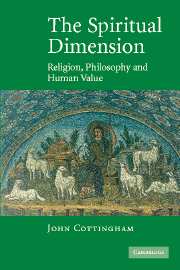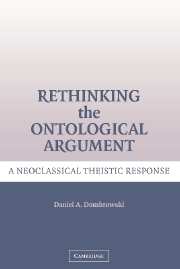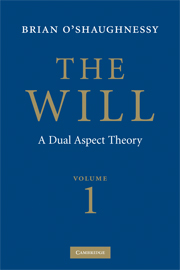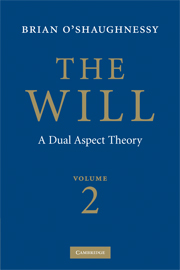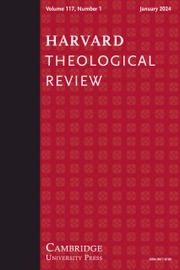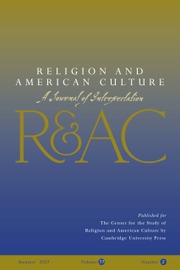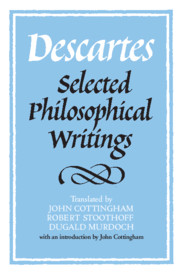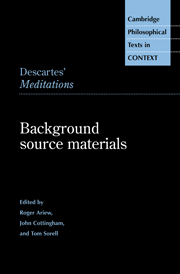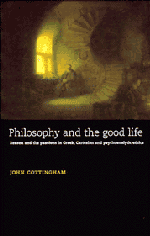The Spiritual Dimension
The Spiritual Dimension offers a new model for the philosophy of religion, bringing together emotional and intellectual aspects of our human experience, and embracing practical as well as theoretical concerns. It shows how a religious worldview is best understood not as an isolated set of doctrines, but as intimately related to spiritual praxis and to the search for self-understanding and moral growth. It argues that the religious quest requires a certain emotional openness, but can be pursued without sacrificing our philosophical integrity. Touching on many important debates in contemporary philosophy and theology, but accessible to general readers, The Spiritual Dimension covers a range of central topics in the philosophy of religion, including scientific cosmology and the problem of evil; ethical theory and the objectivity of goodness; psychoanalytic thought, self-discovery and virtue; the multi-layered nature of religious discourse; and the relation between faith and evidence.
- A book that builds bridges between philosophy and religious studies
- John Cottingham charts a new direction in the philosophy of religion bringing together emotional and intellectual aspects of human experience
- A wide ranging book which will appeal to readers with varied philosophical outlooks
Reviews & endorsements
'… beautifully written and beautifully produced …' The Tablet
'I've been telling everyone enthusiastically about … [Cottingham's] … new book The Spiritual Dimension … not because I agree with everything in it, but because it so compellingly articulates matters of the first importance …' Daily Telegraph
'John Cottingham has followed up his excellent On the Meaning of Life with this equally fine book. … let me end by strongly recommending anyone interested in religion to read this human, wide-ranging, judicious, and highly suggestive book.' The Philosophical Quarterly
'He (Cottingham) has worked hard to make the book accessible to a non-specialist audience … The tone is at all times reasonable, generous, and fair. … it will be welcome to all those who have to engage their atheist or agnostic friends, and who want to do so away from the clichés and cheap put-downs that informs so much of this kind of debate. Humane and generous, it is a fine example of faith seeking understanding.' Church Times
'His book will engage anyone who thinks spirituality is worth talking about - theist, atheist or agnostic. Clearly and humanely, he lays out the ground upon which any truly interesting philosophy of religion must be done.' The Philosophers' Magazine
'This book can be highly recommended as an important contribution to the philosophy of religion from the perspective emphasizing praxis and participation rather than the atomistic analysis of beliefs.' Theology, Ethics and Philosophy
'As efforts to re-contextualise spirituality within technology and religion are increasing, Cottingham's scholarly and aptly titled work makes a most useful contribution to these endeavours … Beautifully written … remarkably clear, this is an indispensable and timely study … A particular attraction of this study is the way in which Cottingham appeals to reason to justify his concern with spirituality … A broadly conceived book, it has much to recommend. It is rich, laden with insight, and bears careful study.' Journal of Contemporary Religion
'Cottingham's effort in this book is an example of how philosophy can be supportive to religion, enlisting psychology as an ally in the process …' Journal of Religious Studies
'… this is an original and stimulating work, which will profit specialist and general readers alike. It is highly recommended.' Philosophical Investigations
'… a very recommendable book. It is rich in analysis, observations and reflections, and it is clear in argument. It is not only for professional philosophers, but for theologians and students as well. … by introducing themes close to psychology like dependency, vulnerability, personal growth and self-insight as part of the repertoire of philosophy of religion, he advances a position that is in content very similar to parts of the continental (and phenomenological) philosophy of religion, but nevertheless his is an understanding of religion firmly based in the post-Wittgensteinian, Anglo-Saxon tradition. As such, this book could be seen as a bridge-builder between different traditions and academic disciplines.' Ars Disputandi
Product details
January 2006Adobe eBook Reader
9780511131219
0 pages
0kg
This ISBN is for an eBook version which is distributed on our behalf by a third party.
Table of Contents
- Preface
- 1. Religion and spirituality: from praxis to belief
- 2. Religion and science: theodicy in an imperfect universe
- 3. Religion and value: the problem of heteronomy
- 4. Religion and self-discovery: the interior journey
- 5. Religion and language: emotion, symbol and fact
- 6. Religion and the Enlightenment: modernist and postmodern obstacles
- 7. Religion and the good life: epistemic
- 8. Religion and pluralism: which spirituality?

